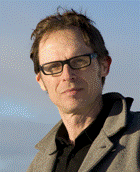报告题目: CO2 capture, Fluidized-bed combustion and Energy Systems Analysis
报告人:Filip Johnsson
Department of Energy and Environment
Chalmers University of Technology, Gothenburg, Sweden
时间:2012年5月10日(周四)上午8:30
地点:系馆报告厅
简介:
Examples of energy related research at Chalmers University of Technology
CO2 capture, Fluidized-bed combustion and Energy Systems Analysis
This lecture exemplifies research activities on at Chalmers University of Technology, with focus on
• Oxyfuel combustion and Chemical Looping combustion for CO2 capture and storage (CCS)
• Fluidized bed combustion and gasification of biomass
• Energy Systems analysis
The research on CO2 capture as well as the fluidized-bed related research has an experimental base, where Chalmers has a long standing tradition of experimental research made under industrially relevant conditions. The talk gives examples form recent experimental work.
As for CO2 capture, both the oxyfuel and chemical looping technologies have been shown to provide efficient and cost effective capture of CO2 with good prospects for commercialization. Yet, a key for successful commercialization are implementation of demonstration projects which have been planned in the EU and elsewhere. The rationale for developing CCS should be the over-abundance of fossil fuel reserves (and resources) in a climate change context. From a geopolitical point, it can be argued that the most important outcome from the successful commercialisation of CCS will be that fossil fuel-dependent economies will find it easier to comply with stringent greenhouse gas (GHG) reduction targets (i.e. to attach a price to CO2 emissions).
From the research on fluidized bed combustion and gasification examples given include modelling of circulating fluidized bed combustion and an innovative indirect gasification system, which was recently implemented as a 4 MW gasifier in the Chalmers 12 MW CFB research boiler.
The energy systems analysis which will be discussed in the talk includes an extensive assessment of the global fossil fuel markets, i.e. of the coal, gas and oil markets as well as modelling and analysis of pathways for transformation of the European electricity generation system. Examples given illustrate work to determine transport and storage infrastructure for CO2 (CCS) and work made on wind power allocation.

Filip Johnsson
Filip Johnsson (born 1960) is Professor in Sustainable Energy Systems in Department of Energy and Environment (appointed 2001). His research area comprises Energy systems analysis, Fluidized bed combustion and gasification and Oxyfuel combustion for CO2 capture. Filip Johnsson also holds several research contracts in solid fuel conversion for various fuels, such as biomass, co-combustion and fossil fuels with CO2 capture as well as gasification of biomass. The energy systems analysis has an emphasis infrastructural change of the energy system. Filip Johnsson is currently leading the project “Pathways to Sustainable European Energy Systems”. An important focus of the current research is large scale integration of renewable energy, especially wind power. Filip Johnsson is a board member of ELFORSK (The research and development company of the Swedish utilities) and member of the scientific advisory boards of VGB and the EU directorate Joint Research Center (DG-JRC) in the area of energy.